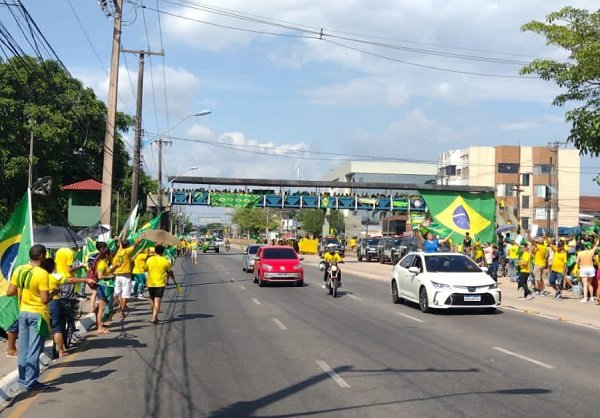This Content Is Only For Subscribers
To unlock this content, subscribe to INTERLIRA Reports.
On Sunday night (30/10), supporters of President Jair Bolsonaro, including truck drivers, set a series of roadblocks across federal roads in the country in protest against the result of the presidential elections, which had Luiz Inácio Lula da Silva (PT) as the winner in the dispute for the country’s Presidency. Protesters call for a coup d’état.
Acts in Entire Country
At the apex of the movement, the Federal Highway Police (PRF) recorded approximately 420 points of blockages or agglomerations on roads in 25 states and the Federal District. On Sunday (06/11), there were only two blockades on federal highways.
Brasília
As a precaution, the Federal District Military Police blocked part of the Esplanada dos Ministérios, in Brasília. The region comprises the Praça dos Três Poderes, where the National Congress, the Planalto Palace and the Federal Supreme Court (STF) are located. Supporters of President Jair Bolsonaro have released videos announcing that they were going to invade this region, just like Trump supporters did after his defeat to Joe Biden.
No Demobilization After President’ Speech
On 1 Novemeber, even after the first speech by President Jair Bolsonaro about the elections and the demonstrations, protesters kept the roadblocks. The President did not explicitly ask for the demobilization of roadblocks. He said that the movement is “the result of indignation and a feeling of injustice at how the electoral process took place”, which was interpreted by political commentators as support for the acts. However, Bolsonaro said that the methods of his supporters “cannot be those of the left” nor include curtailing the right to come and go.
A Second Speech
On Wednesday (02/11), President Jair Bolsonaro published a video in which he asks his supporters to clear roads that are obstructed. The President said that other demonstrations, in squares and public places, are part of democracy. He did not comment on requests for a military coup made by the protests.
Problems with the Federal Highway Police (PRF)
On Monday night (31), the Federal Supreme Court (STF) Minister Alexandre de Moraes ordered the Federal Highway Police and the State Military Police to take immediate measures to normalize the country’s highways. Moraes also ordered Silvinei Vasques, Director of the Federal Highway Police (PRF), to be fined R$100,000 as of Tuesday (01/11), removed from office and arrested if he does not immediately take the necessary measures to control the acts. Owners of trucks used in roadblocks who insist on maintaining roadblocks were to be fined too. Moraes also said that Military Police (PM) forces could interfere to remove protesters from the roads that.
The PRF was accused of being tolerant with protesters and, in some cases, even showing support for their cause. Prosecutors from the Federal Public Ministry asked Federal District Attorney Peterson Pereira to open an investigation against Vasques, due to alleged omission in the case of roadblocks by Bolsonaro supporters. The Military Police, used due to the PRF’s inaction, also had some occasion in which they were recorded supporting and collaborating with protesters.
The number of federal highway police officers who worked on the country’s roads on Monday (31), when blockades spread across the country, was similar to that of other normal Mondays in October. Therefore, according to media sources, there was no immediate reinforcement to respond to the emergency. 2,310 agents were working on the day after the second round of the elections. The PRF only increased the number of policemen on duty – to 3,327 agents – on Tuesday (01/11), after a decision by TSE President Alexandre de Moraes.
More Investigations
According to the Public Prosecutor’s Office (MPF), the PRF will also be investigated for a series of check points set on the day of the second round, mainly in the Northeast of the country. In this case, the MPF will verify if the operation did not constitute an offense to the right to vote. Even though the check points were carried out in the entire country, the biggest number took place in the Northeast, causing traffic jams and making it harder for voters to arrive at their voting zones. The population of the northeast region votes mostly for Lula. In this case TSE President Moraes had to interfere. He called PRF Director for a meeting for him to halt the operations.




